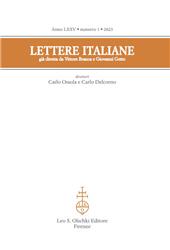Frugalità : un ideale etico-sociale tra Montesquieu, Rousseau e gli antichi
P. 43-61
Cosa significa esattamente adottare uno stile di vita fr"ugale"? La frugalità non è altro che una "povertà volontaria", secondo la definizione attestata sin da Seneca? Per rispondere a queste domande l'articolo traccia un percorso attraverso la storia dell'idea di frugalità, soffermandosi su due momenti specifici della sua lunga storia: l'antichità classica, romana in particolare, quando Cicerone ne fa il cardine del mos maiorum; e il Settecento, quando Montesquieu e Rousseau, a dispetto dello sfavore ormai incontrato dalla frugalità in una società europea avviata verso il consumismo capitalista, tornano a presentarla, con modalità e per ragioni diverse, come un ideale etico-sociale desiderabile. [Testo dell'editore]
What exactly is a "frugal" lifestyle? Is frugality nothing more than a "voluntary poverty", according to the definition attested since Seneca? To answer these questions, the article traces a path through the history of the idea of frugality, focusing on two specific moments in its long history: classical antiquity, Roman in particular, when Cicero made it the cornerstone of the mos maiorum; and the eighteenth century, when Montesquieu and Rousseau, in spite of the disfavor now encountered by frugality in a European society heading towars capitalist consumerism, return to present it, in different ways and for different reasons, as a desirable ethical-social ideal. [Publisher's text]
Is part of
Lettere italiane : LXXV, 1, 2023-
Articles from the same issue (available individually)
-
Information
DOI: 10.1400/292897
ISSN: 2035-6315
DISCIPLINES


